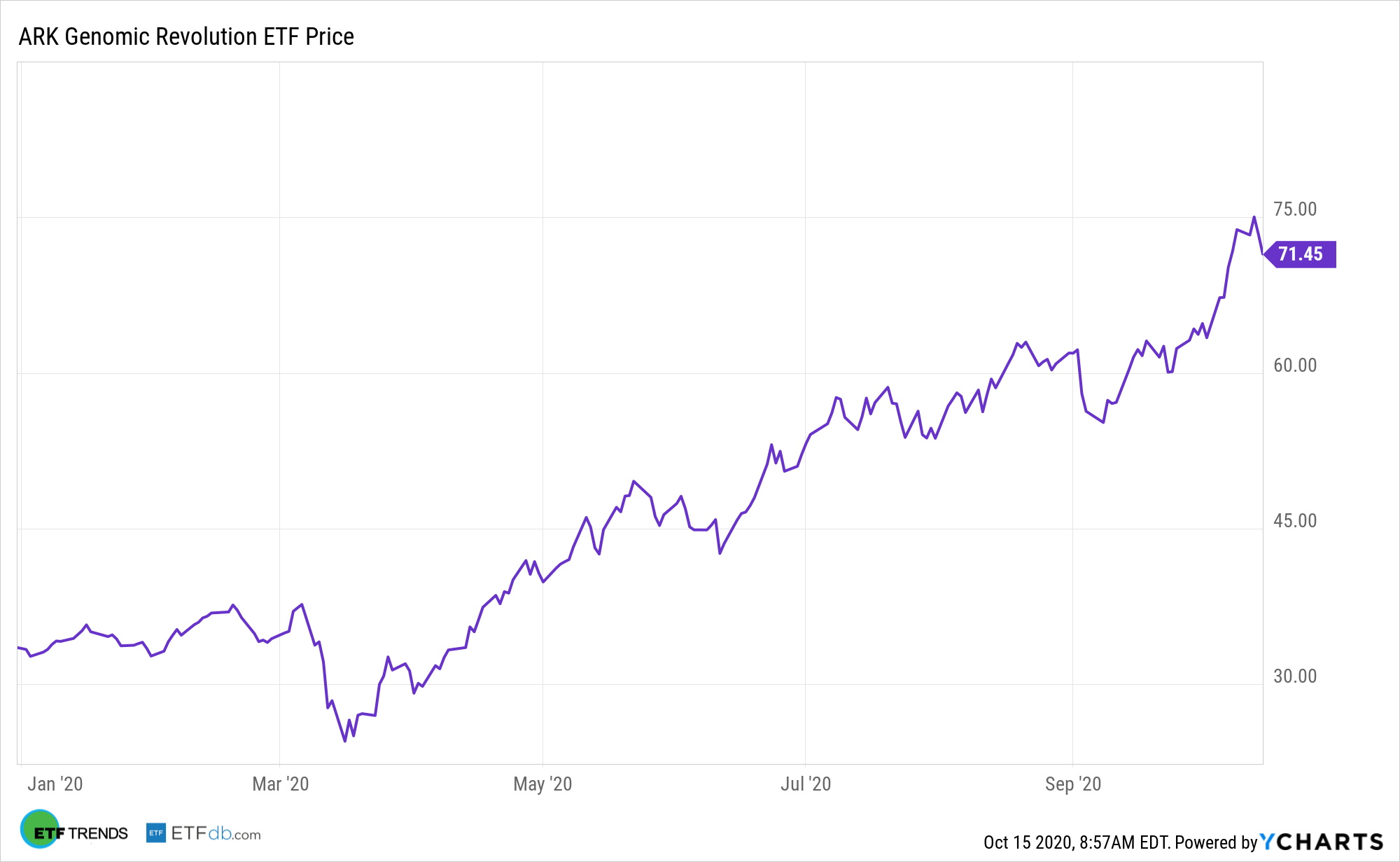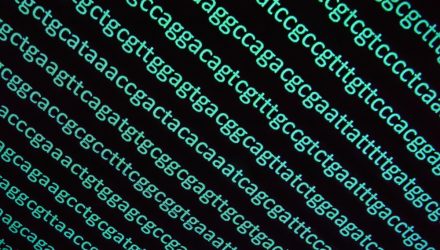The ARK Genomic Revolution Multi-Sector Fund (CBOE: ARKG) is a star among healthcare exchange traded funds this year and CRISPR is a big reason why.

Looking at the long-term outlook, ARKG includes companies that merge healthcare with technology and capitalize on the revolution in genomic sequencing. These companies try to understand better how biological information is collected, processed, and applied by reducing guesswork and enhancing precision, restructuring health care, agriculture, pharmaceuticals, and improving our quality of life.
The convergence of Artificial Intelligence (AI), Next Generation DNA Sequencing (NGS) and CRISPR gene-editing has the potential to boost the efficiency of drug development radically. Breakthroughs in genomic science can present new treatments to help patients recover from what were once believed to be incurable afflictions.
CRISPR Cas9 is a new, potentially lucrative frontier in the field.
“Many academic institutions are experimenting with CRISPR Cas9 and have published thousands of research articles expanding on its possibilities,” according to ARK Invest. “Currently, most clinical trials are ex vivo, the editing taking place outside of the body. We believe in vivo gene editing is the next frontier.”
CRISPR: Correcting Genetic Defects?
CRISPR could enable cheap and rapid “write” capabilities to correct genetic defects.
Looking ahead, CRISPR-based innovations to accelerate given the technology’s ease of use, cost-efficacy, growing body of research surrounding its safety, and AI-powered CRISPR nuclease selection tools. CRISPR could also be utilized to address some of the most prominent healthcare problems, which opens up a significant investment opportunity in monogenic diseases.
“This week Intellia Therapeutics (NTLA) presented data at the Oligonucleotide Therapeutics Society (OTS) showing the successful suppression of TTR, the gene that causes a buildup of abnormal proteins called amyloids, in non-human primates. Human trials should start by the end of this year,” according to ARK.
Plus, CRISPR and DNA sequencing intersect, a theme ARKG captures.
CRISPR can cut DNA/RNA at a single point or in stretches; insert DNA/RNA and create novel gene sequences; activate and silence genes without making permanent changes; regulate protein expression levels epigenetically; record and timestamp biological events; track the movement of specific biological molecules; identify the presence of specific cancer mutations and bacteria; locate molecules without making changes; target and destroy specific viral and bacterial DNA and RNA; interrogate gene function multiplexed, and activate drug release at a specified trigger.
For more on disruptive technologies, visit our Disruptive Technology Channel.
The opinions and forecasts expressed herein are solely those of Tom Lydon, and may not actually come to pass. Information on this site should not be used or construed as an offer to sell, a solicitation of an offer to buy, or a recommendation for any product.

